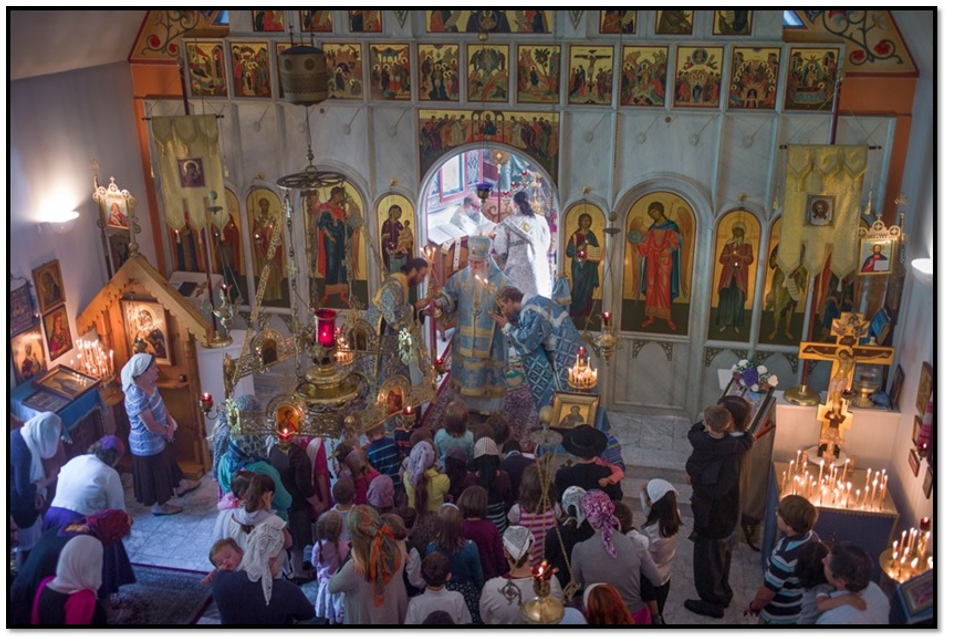There’s a huge part of me that doesn’t make any sense in the modern world: When I was six years old, my family and I converted to Eastern Orthodox Christianity, the original Church founded by Jesus Christ and described in the New Testament. I attend services that are hours long, written in the fifth century, led by priests and deacons, that involve little to no sitting down, and use no musical instruments. On any given day, there is a one in two chance that I am fasting, as we abstain from meat and dairy products for approximately half the year. I have an icon corner in my dorm room (pictured above), and a larger one in my family home. To me, there are few places more beautiful than Orthodox churches. This is the interior of the church I attended for five years, St. Xenia Russian Orthodox Church of Methuen, Massachusetts:
With the beginning of our Great Lent on March 14, I want to introduce Orthodoxy to those who may not know about it, and to explore what it means, for me, to be Orthodox at a small liberal arts college.
I’m no theologian, so I won’t take it upon myself to explain the specifics of my faith. Here are two resources which describe the basics: this page gives a brief history of the Eastern Orthodox Church, and this one outlines what we believe.
Most of my peers have either never heard of Eastern Orthodoxy, or they equate it to Catholicism, having never been informed of the specifics (my faith is also unrelated to Orthodox Judaism). Within Haverford’s 1,200-person student body, the only other Orthodox Christian I know of is my own brother.
I am troubled, not just by the lack of visibility of Orthodox Christianity specifically, but by the common campus narrative that faith is a childish notion to be grown out of, an outdated way of life that most college students do not observe or take seriously. Many of my peers speak of being raised in a certain religion, then finally renouncing it or intentionally falling out of practice upon entering college. It is important to understand that many college students practice religion because they choose to, and not because of pressure from their family or community. Every day, I make the choice to put my cross around my neck and to do my morning prayers before I leave for class.
While I have come to feel at home in our many traditions and practices, a daily challenge is the conflict between the Orthodox belief system and modern society. Most viewpoints held by my peers and encouraged by our current culture do not naturally reconcile with the teachings of the Church. I must constantly choose between my faith and fitting in ideologically.
Even beyond this internal struggle is the question of whether or not I should speak up when I disagree with my peers based on the Church’s teachings. Because society teaches that faith-based convictions are irrational and have no place in logical analyses of current issues, I stay silent more often than I’d like to admit. It is perhaps the most casual utterances which perpetuate this tendency: nine days out of 10, in casual conversation and classroom discussions, I hear my deepest-held values used as punchlines.
A few weeks ago, a classmate recounted a piece of advice her father had given when she was younger: “Don’t worry, because God has a plan for you.” She laughed openly as she said this phrase, and many members of the class chuckled along with her. This exact sentiment has seen me through the roughest periods of my life, but it was publicly mocked and dismissed in the classroom of an institution which preaches “trust, concern, and respect.” We must be aware and accepting of our differences, including those of faith. While my religion may seem bizarre and outdated, it deserves as much acknowledgement and respect as any other identity marker.






















